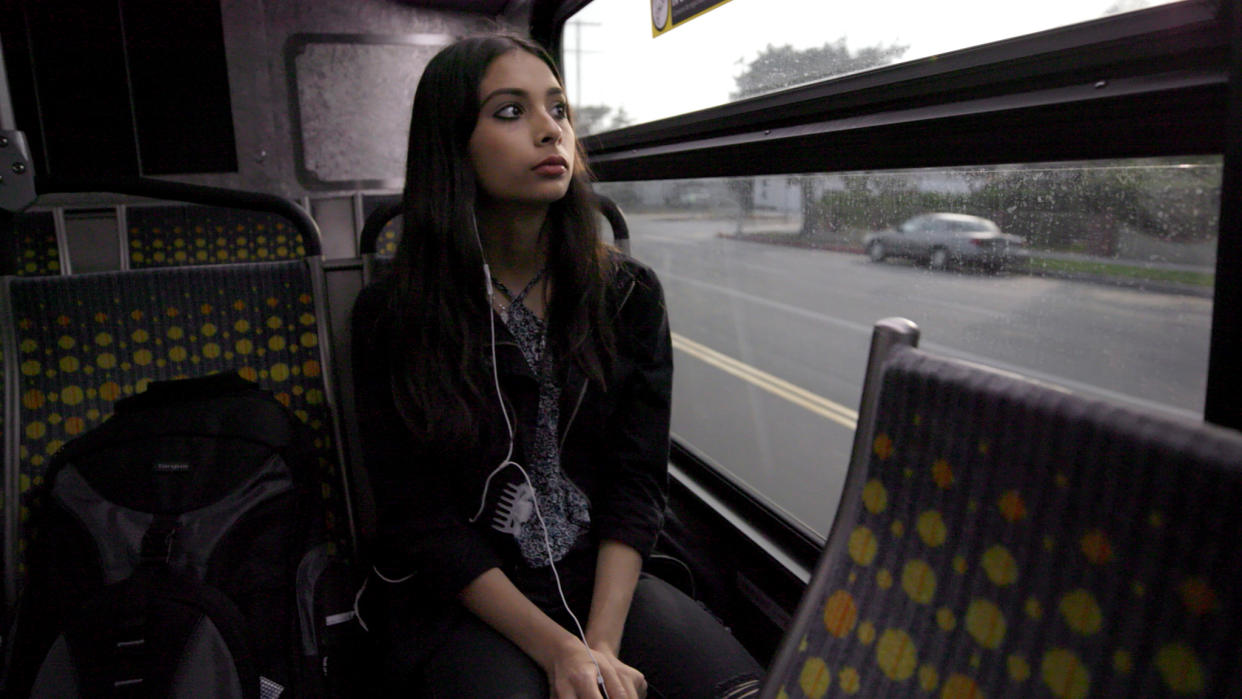How HBO Doc ‘Foster’ Gives ‘Unprecedented’ Look Into Children in Foster Care System

The documentary “Foster” features numerous individuals in the foster care system, but the inspiration for the film started with just one child.
About 25 years ago, producer Deborah Oppenheimer met a 6-year-old boy named Patrick, while she was volunteering at a public school.
Related stories
Jessica Chastain, Ava DuVernay Call Out 'Game of Thrones' for Treatment of Women
'Perry Mason' Series at HBO Casts John Lithgow
“I asked his story and discovered that he had been removed from his parents, he was living in an orphanage in Hollywood,” says Oppenheimer, who recalls “sobbing” after returning home that day. “I had never encountered a foster youth in the system before, and I resolved to continue to work with him.”
That experience became the seed for the film, which was acquired by HBO out of Sundance this year and is set to premiere Tuesday. However, Oppenheimer and director Mark Jonathan Harris intended to make a decade ago, but their schedules didn’t collide until 2014. The filmmakers, best known for the Academy Award-winning doc “Into the Arms of Strangers: Stories of the Kindertransport” (2000), have long been interested in exploring issues facing children. The foster care system exemplified many of these problems, Harris says, and they wanted to unpack the stigmas associated with it.
“There are negative stereotypes of everybody in the system. Social workers are seen as child stealers; the kids are seen as throwaways, damaged beyond repair; the parents are seen as people who have abused and neglected their children,” Harris says.
For about a year and a half, Harris and Oppenheimer followed foster kids, parents, social workers, lawyers and judges in the Los Angeles County Department of Children and Family Services, the largest child welfare system in the country. The children are at different stages in their lives: A few have been adopted, some are bouncing from group home to group home, and one girl, Mary, is struggling to stay in college.
Diane Weyermann, president of documentary film & television at Participant Media and producer on the film, says the Oppenheimer and Harris had “unprecedented behind-scenes access” into a system whose inner workings most people have never seen.
“They were able to provide an extraordinary picture of the inner workings of DCFS,” says Weyermann. “As far as I know, they are the only team to go this deep into the system and follow not only the kids but also the case workers, the juvenile court proceedings, the mentors. It truly covers the gamut.”
Harris says the film shows that the foster system tremendously impacts the children’s inner psyches and can leave them with trauma caused by the adults around them.
“Kids often try to understand how this has happened. They blame themselves. You can see that in Mary’s story, particularly. Mary says, ‘I always wondered what’s wrong with me? Why was I passed down from family to family? Why didn’t nobody take me in?’ As if this is her fault,” Harris says.
The film also points out that the problems in and around the foster system are indicative of larger issues that society hasn’t addressed, such as poverty, drug addiction, unaddressed mental health issues and racism. As noted in the film, African Americans make up 10% of the Los Angeles population but compose 25% of the foster care system.
Oppenheimer says the timing of the film couldn’t be more relevant; the Family First Prevention Services Act passed last year, which would require states to help families that are at risk of entering a child into the welfare system. She also hopes the film will further dialogues surrounding legislation to extend foster care until 21. Many foster children are cast out as soon as they turn 18, and for every year that it’s not extended, the likelihood of incarceration, homelessness, and other issues rise exponentially, Oppenheimer says.
Despite the many hurdles they face, the children featured in the doc show remarkable resilience. Jessica, a former foster kid, was on the brink of failure until one person “breathed life into” her. Now she has her master’s degree and is a social worker.
“These kids have enormous potential,” Oppenheimer says. “We hope that people should see who these children are and who they can be, and take steps to contribute to that and help advance that.”
It’s no coincidence the film debuts on Foster Care Awareness Day. Oppenheimer says while not every viewer has the ability to adopt or foster a child, they can still take small steps to help children in need, from holding a Christmas drive, to mentoring a kid and helping them with job skills, to a company creating a more foster-family-friendly workplace.
Participant also initiated a social impact campaign ahead of the film’s release, says Whitney Kleinhenz, the vice president of social impact at Participant Media. A 10-state screening series brought local leaders together to address some of the biggest challenges currently facing the foster care system, and Participant provided resources for over 4,000 practitioners working across the system so families can “thrive, and not just survive.”
And like Jessica, Patrick needed just one person to change his life. He’s now 31 years old, has served with the Marines in Iraq and currently attends college.
“Deborah has been the consistent, caring adult in his life, from the time he was six to the present, and that’s made all the difference in Patrick’s life,” Harris says.
“Foster” premieres Tuesday, May 7 on HBO.
Sign up for Variety’s Newsletter. For the latest news, follow us on Facebook, Twitter, and Instagram.

